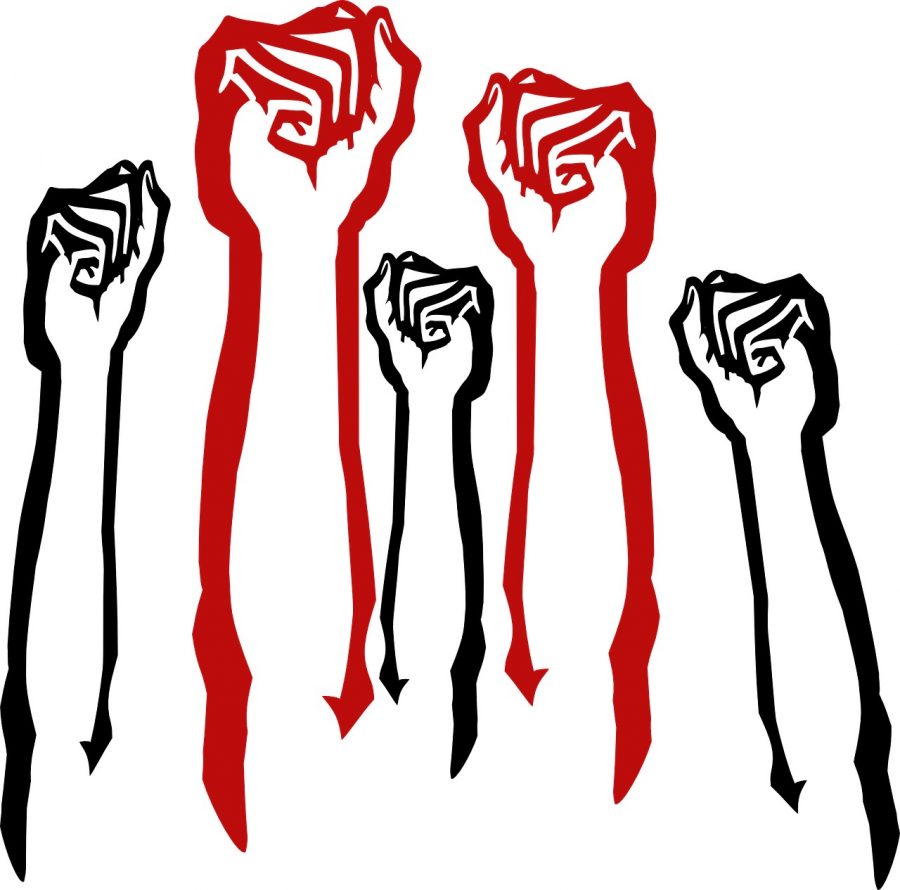The Plight of Black Women: A Double-Edged Sword
December 2, 2020
Bell Hooks once recounted “that the struggle to end racism and the struggle to end sexism were naturally intertwined, that to make them separate was to deny a basic truth of our existence, that race and sex are both immutable facets of human identity.” Bell Hooks spoke her truth. A truth that all black women face in their lives. A truth that questions the facets of their identity. Am I black or am I a woman? In this world, why can’t I be both?
In a society rooted in attempts to dismantle systems of oppression that statement can be seen as a left-field observation. Given the presence of modern fights for freedom like the Me Too Movement and the Black Lives Matter movement or events in the past like the Civil Rights Movements and Women’s Suffrage black women should have been one of the main focal points. However, that is not the case in the present day. According to the American Psychological Association, “black women are often overlooked in people’s conversations about racism and sexism even though they face a unique combination of both of these forms of discrimination simultaneously.”
Stewart Coles, a Ph.D. candidate at the University of Michigan’s Department of Communication and Media, calls it “intersectional invisibility.” Movements designed to help black women often hurt them. The typical woman is set in the image white woman. Black women are seen as more defined by their skin color than their gender. But, in race-related movements, the focal point is always the men. Black women are consistently ignored in both parts of their identity.
Our civilization is built on the stereotypes of minority groups. The negative connotations placed on certain groups allows for hate to be spread within their own circles. Black women not only face the problem of systemic racism but the belittling fist that sexism and misogyny have wrapped around their throats. Black women are consistently targeted for being black while also being demeaned for being women themselves.
In the study Racial and Gender Discrimination in the Stress Process: Implications for African American Women’s Health and Well-Being the authors of the study noted that “for African American women, racism-related stress may be compounded by experiences of sexism. Like racism, sexism is reflected in individual attitudes, collective ideology, and the structure of social institutions.” As black women, we face pressures on all sides of our identity. Being black is more often associated with being masculine. So, when something traumatic happens to black women their pain is not taken seriously. Megan Pete recounted from her own experience from gun violence that after she was shot people “publicly questioned and debated whether [she] played a role in my own violent assault proves” Our stories are not seen as tragedies they’re seen as accidents that we’ve caused.
In a country rooted in the ideals of capitalism and the notion that working hard gets you places, minorities are set at a disadvantage. The race and gender gap puts minority women at an even greater disadvantage than their male counterparts. According to the Center for American Progress, it takes “roughly eight months—that a Black woman working full-time year-round in the United States must work into the current year to have earned what her white male counterpart earned during the prior year.” Black women in 2017 earned 61 cents to every dollar a white man earned. From day one their capabilities are set aside and doubts. Even in comparison to their race and gender, black women don’t fare much better. The same source stated that “black women also experience wage disparities when compared with white women and black men”. Black women are only seen as their outward identity, black, and woman In the eyes of their oppressors, they are not worthy enough to be equally paid.
I can say as a black woman in America I have been discounted. I have been neglected. I have been ostracized from circles predominantly filled with white women and belittled by black men. I have been treated like I am not worthy of protection and support. It’s not enough for you to just recognize the problem. We need you to uplift our voice. When you talk about sexism, make women of color your focal point. When you talk about racism, bring up the ignored plights of black women. Black women need allies. Black women do not need to be cast aside, talked over, or spoken for. Listen to us. We deserve our day in the sun.



